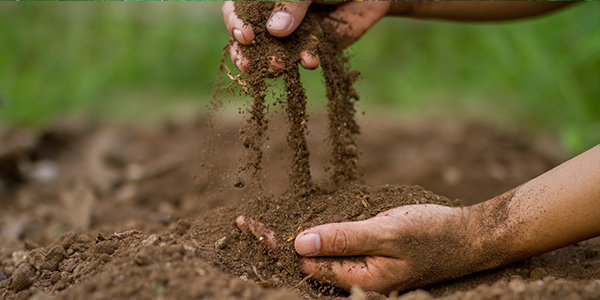Beneficial bacteria and microorganisms play a pivotal role in cycling nutrients and water to sustain healthy plants. They break down organic matter and in turn, release essential nutrients and carbon dioxide back into the soil. They also improve the soil's overall structure and drainage. To reap these benefits, discover how you can increase beneficial bacteria in your soil and help your garden thrive.
Add Compost to Boost Beneficial Bacteria
To start, you should enrich your soil with high-quality organic compost. Compost adds nutrients and a healthy dose of microorganisms to the soil. Moreover, since compost derives from organic matter, it will also act as the primary source of energy for microorganisms. For an ideal ratio of compost to the soil, add 1/2 inch of compost to the top layer of the soil and water it well.

Layer a Variety of Mulches
To continue feeding the beneficial bacteria already established in your soil, you should add a variety of other organic materials to your soil that can be broken down. A simple and effective solution is layering a variety of mulches that decompose at different rates. Try adding layers of bark mulch, wood chips, straw, and lawn clippings.
Each type of mulch degrades at an individual rate. As a result, you can ensure your soil's microorganisms are continually fed. As an added benefit, mulch will also help curtail any potential weeds from growing in your garden.
Water Your Soil Appropriately
Like any living thing, microorganisms need food, water, and oxygen to survive. They also thrive in moderate temperatures. You can achieve this by keeping your soil moist and by adding a top layer of mulch to regulate the soil's temperature. Water your garden and soil frequently, especially during the warm summer months. Don't worry about watering deep into the soil. Because microorganisms require direct access to oxygen, about 75% of soil organisms are found in the top five centimeters of soil.
Use Cover Crops During the Offseason
During your garden's offseason, it can be tempting to leave your beds and islands bare until the growing season begins. By leaving soil bare, it can encourage weeds and also deplete the beneficial bacteria in your soil. Instead, consider adding a cover crop during the offseason. By adding a cover crop, you are providing food for your soil.
During the winter months, there are a variety of cover crops that will condition and maintain your soil, including winter rye, wheat, Austrian winter peas, and crimson clover. And for periods of intense heat, buckwheat, sun hemp, and pearl millet are excellent choices.
Enrich Your Garden Soil with Kurtz Bros., Inc.
Kurtz Bros., Inc has all the materials need to enrich your garden soil, such as our straw, wood chips, compost, and more!. Contact us or visit us in-store so we can assist you!
